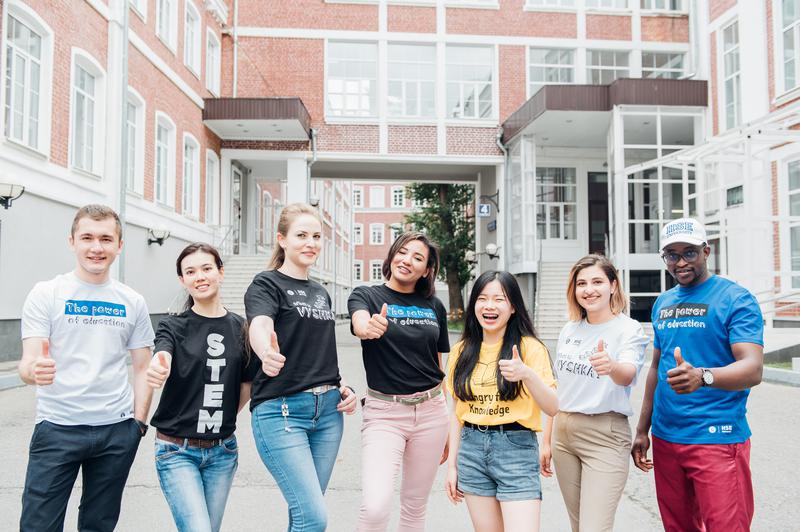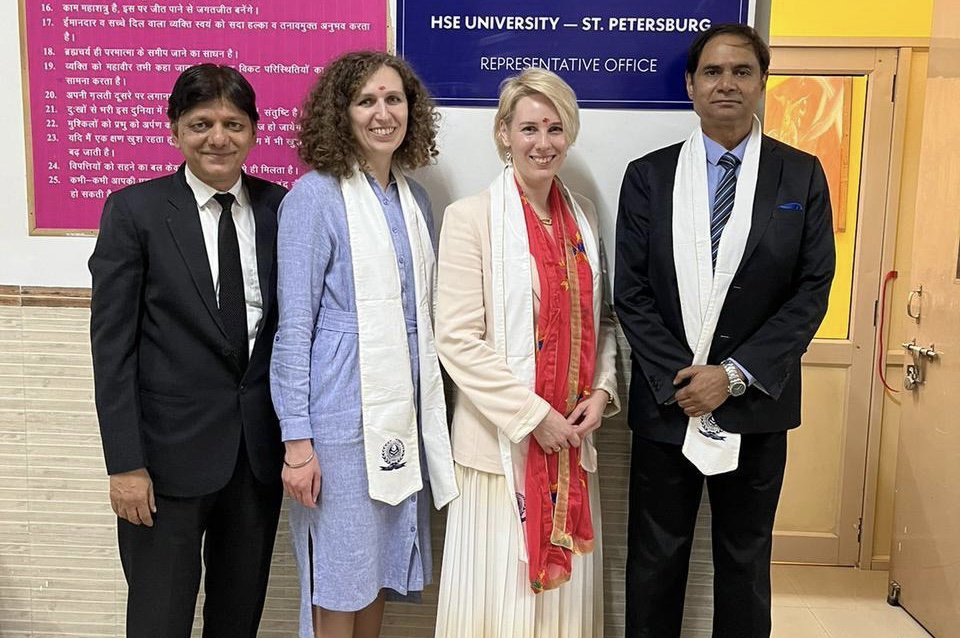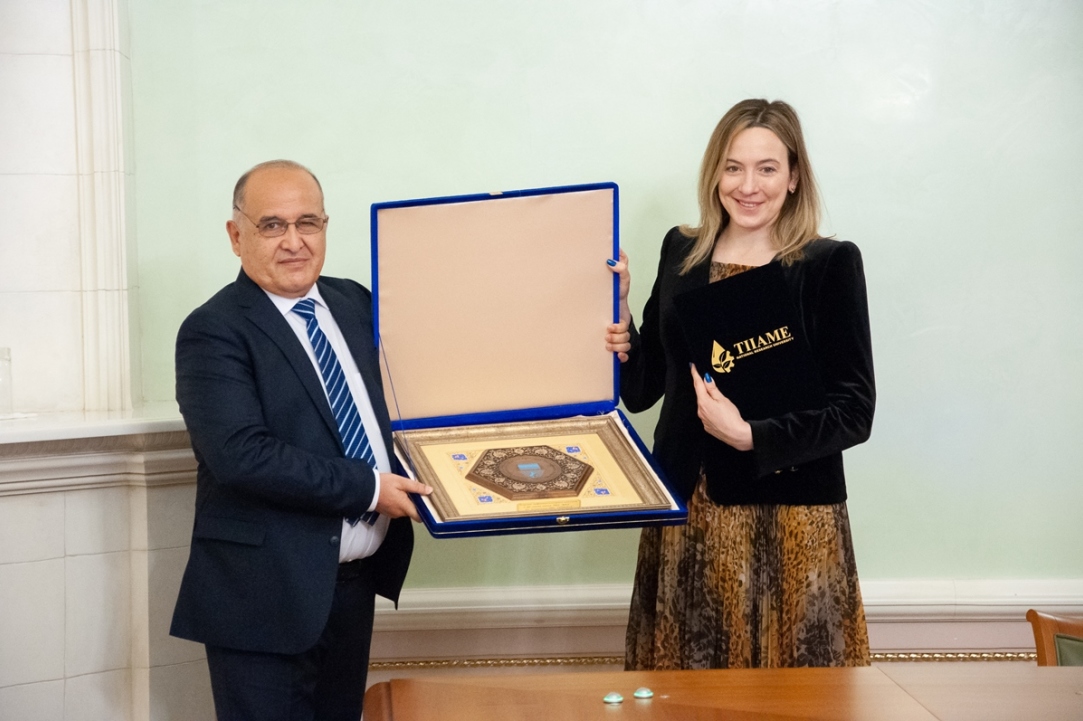
Over 56,000 Participants from 196 Countries Registered for Open Doors: Russian Scholarship Project
The first stage of the Open Doors: Russian Scholarship Project for prospective master’s and doctoral students has concluded. The winners of the competition get an opportunity to study at Russian universities for free. HSE University is among the most popular universities on the project.

HSE University-St Petersburg Opens Representative Office in India
HSE University-St Petersburg is opening a foreign representative office in India in collaboration with Swami Vivekanand Subharti University. On December 7, the universities agreed to sign a memorandum of understanding, having reached all the preliminary agreements in November.

Higher School of Economics in Kyrgyzstan to Open in Bishkek
On December 19, HSE Rector Nikita Anisimov and Chairman of the Cabinet of Ministers and Head of the Presidential Administration of Kyrgyzstan Akylbek Zhaparov met in the capital of Kyrgyzstan. The parties agreed to implement a joint project to train staff for the economic block of the government of the republic. As part of the project’s first stage, the Higher School of Economics of Kyrgyzstan will be created on the basis of the Training Center of the Ministry of Finance of Kyrgyzstan with full methodological support from HSE University. This was a new systematic step in expanding cooperation between HSE University and the Government of Kyrgyzstan.

HSE University Hosts International Conference on Current Issues in Language Education
The HSE University School of Foreign Languages has held the second HSE LED Conference devoted to exchanging research and professional experience. Attendees included academics and teachers, experts and practitioners, language-education administrators and managers from various regions in Russia and abroad. The conference was held in person and online on December 8–9.

‘The Most Important Issue Today is to Successfully Navigate Stormy Waters’
Nandan Unnikrishnan, Distinguished Fellow and Supervisor of theEurasia Programme at the Observer Research Foundation (ORF), will talk at HSE University about the challenges and prospects of Russia-Indiarelations on December 8. The seminar will take place as part of the ‘India and Global Policy Challenges’ project.Olga Kharina, Research Fellow at the HSE Faculty of World Economy and International Affairs, and Nandan Unnikrishnan talked to the HSE News Service about the project.
.jpg)
‘AI Is a Tool, and Those Who Master It Will Have a Competitive Advantage’
HSE University is hosting the FIT-M 2022 International Scientific Forum. As part of this event, the HSE Cultural Centre held a series of lectures on November 29–30. On December 7–9, guests of the forum will have three days of practical work with scientists, IT industry leaders, businesspeople, and industry experts.

HSE University to Attract More Students from African Countries
The number of HSE students from Africa has exceeded 200 this year. Today, 235 students from 31 African countries study at the university. Last year, 175 students from 29 countries studied at HSE University.

HSE University and TIIAME Sign Cooperation Agreement
The agreement between HSE University and the Tashkent Institute of Irrigation and Agricultural Mechanization Engineers is aimed at developing academic and cultural cooperation, including student exchange. The agreement was signed on November 25, on the eve of HSE University’s 30th anniversary. On the same day, representatives of universities and diplomatic missions of Kyrgyzstan, Armenia, Kazakhstan, Mongolia, Iran, Egypt, and Bolivia visited the university.

First Sino-Russian Economic Cooperation Workshop—Economic Performance from Regional Aspects
The HSE Faculty of Economic Sciences and the School of Economics at Shanghai University have co-organised the First Sino-Russian Workshop on ‘Economic Performance from Regional Aspects’. The researchers discussed how they detected and assessed the effects of different economic policies in Russia and China at a regional level.

‘An STI-Accelerated and Informed Future is Possible’
The Twelfth International Academic Conference ‘Foresight and Science, Technology and Innovation Policy’ is kicking off at HSE University on November 22. Alexander Sokolov, chair of the organising committee, talked to the HSE News Service about the evolution of the foresight agenda. Two of the conference speakers, Ibon Zugasti from Spain and Mlungisi Cele from South Africa, shared some highlights of their research.


Deadline for applications to present academic reports - January 20, 2025